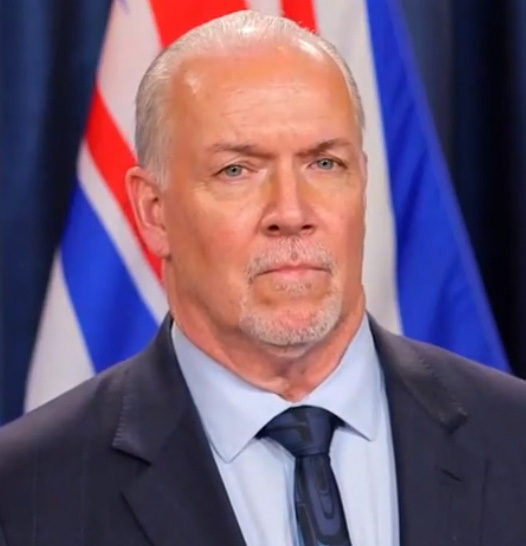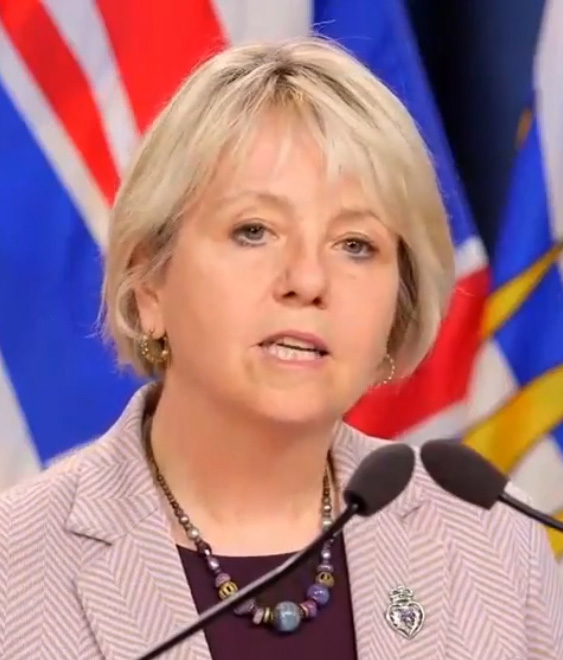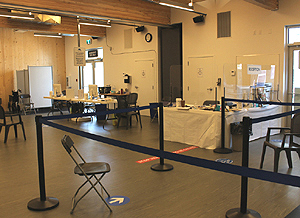
Monday May 24, 2021 | VICTORIA, BC
by Mary P Brooke, B.Sc., Editor | Island Social Trends
This has now been the second May Long Weekend in BC under the shadow of COVID-19. The pandemic rages on but BC is going to try easing out of it with a big announcement on Tuesday May 25.
On Tuesday morning the media will get a tech briefing, and then at 1 pm the public will hear a live teleconference led by four major headliners: Premier John Horgan, Minister of Jobs, Economic Recovery and Innovation Ravi Kahlon, Health Minister Adrian Dix and Provincial Health Officer Dr Bonnie Henry.
This comes as hospitalizations (and ICU admissions) due to COVID are still higher in BC than anyone could have imagined before the pandemic, but now seem ‘manageable’ at 292 and 96, respectively. Some people’s livelihoods are breaking if not broken, and the social fabric of families, relationships, communities and nations are under strain in a myriad of ways.
The required physical distancing of the past period of nearly 15 months will not suddenly end. Neither will the requirement to wear masks in indoor public spaces, or to keep gatherings small. Dr Henry has promised the changes will be gradual, i.e. not a light switch on, but a dimmer switch turned up slightly.
As we reach the end of this circuit-breaker that since mid-March has attempted to wrestle BC’s third wave of COVID-19 to the ground, here is a summary of COVID statistics for BC:
COVID statistics (to May 24, 2021):
Total cases of COVID in BC to date is 142,347, of which 3,953 are active (over the past three days of the long weekend 974 cases were added to the total). See current BC CDC COVID dashboard
Presently 292 people are hospitalized due to COVID-19 (96 of those in ICU); there have been 7,468 hospitalizations to date during the pandemic (as of May 21, 2021).

There are presently no outbreaks in long-term care, assisted living or independent living within the Island Health authority.
Ahead of the weekend the positivity rate was still high at 6.4% across BC (and still relatively high on Vancouver Island at 3.9%.
There have been 1,679 deaths in BC (40 in Island Health), pandemic to date.
Case numbers among children & youth:
To the last available date for age data (May 19, 2021), 7,818 children under the age of 10 have tested positive for COVID-19 in BC (365 of those on Vancouver Island), with 14,874 testing positive in the 10 to 19 age cohort (586 of those on Vancouver Island).
Vaccinations to date:
As of Monday May 24 there have been 2,885,488 vaccinations administered in BC among people age 18+. That 67.1% of adults in BC who have received a COVID vaccine injection. Of BC adults, 147,144 people (3.4% of total adult population) have received a second dose. That leaves a long way to go to that level of confidence that people seek with ‘herd immunity’ which is generally considered to be achieved with over 70% of the population being vaccinated with two doses.

Of vaccinations to date in BC, the majority have been mRNA-type vaccinations (Pfizer and Moderna) along with the viral vector type AstraZeneca vaccine product that is now being used more carefully amidst worries of a blood clotting condition considered rare but serious.
The government-run clinics administer primarily the Pfizer and Moderna products. Youth ages 12 to 17 years will receive the Pfizer-BioNTech vaccine, said Dr Henry yesterday. Pharmacies are generally carrying the AstraZeneca product.
Vaccinations are to prevent or minimize serious illness, hospitalization and death. People who get vaccinated can still contract the disease and spread it.
Before the long weekend, Dix urged everyone to register and show up for vaccination appointments. Tomorrow we will hear the new numbers, along with whatever glimmer of hope society overall can hope for in a continuing pandemic.
Social impacts:
While over the past few months the priority to vaccination people in long-term care, then front-line and essential workers, is now seemingly suddenly open to everyone. But it could be argued that the socio-emotional impact on people in their 20s and 30s — having waiting to last in the age-based system — could feel a bit put-off by the de facto queue-jumping of youth who can show up with adults even without being registered.
Other social-emotional impacts are likely to emerge over a period of years, as people document their losses (and some their gains) from this period of history that has seen words like ‘extraordinary’ and ‘unprecedented’ become emblazoned deeply into the lexicon of these times.





